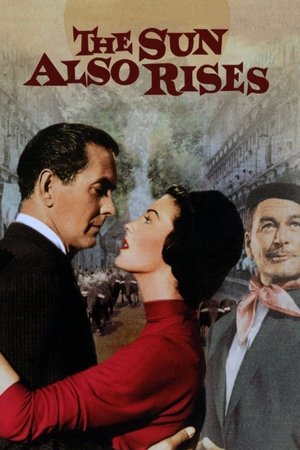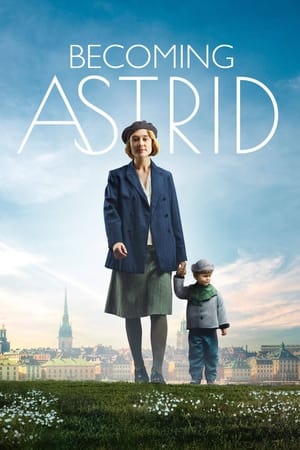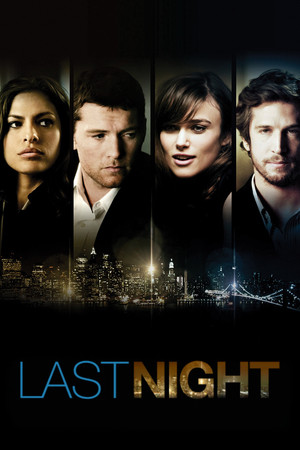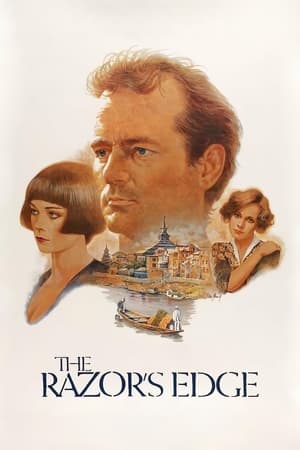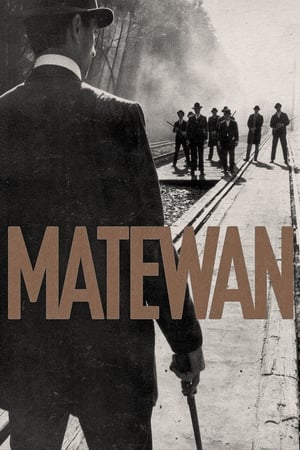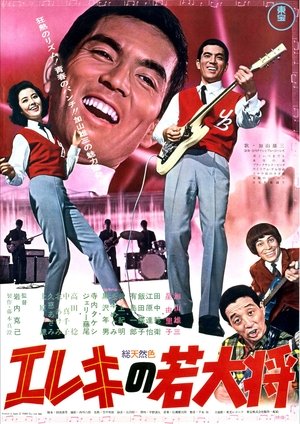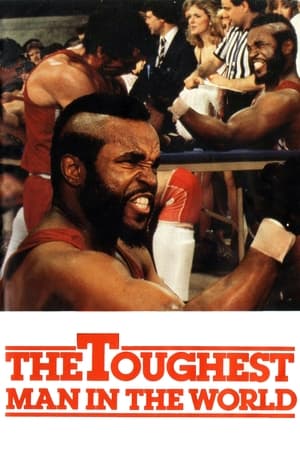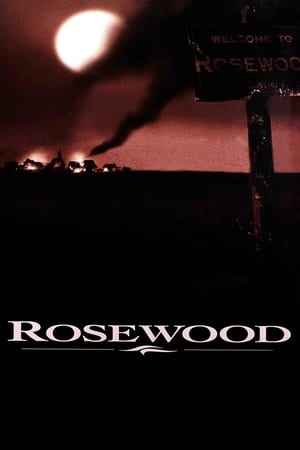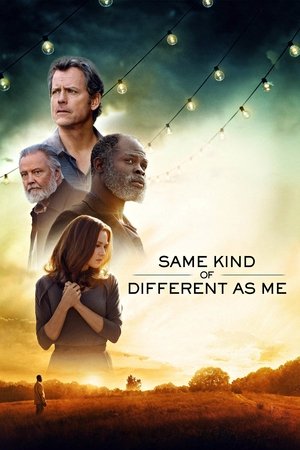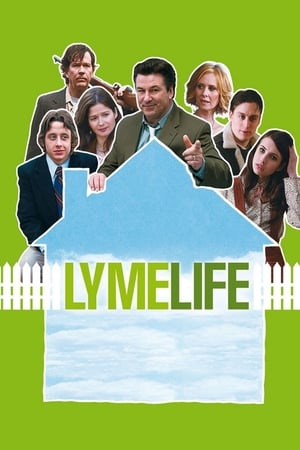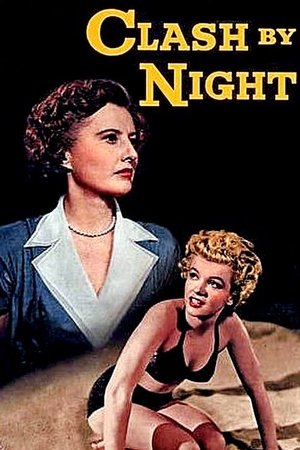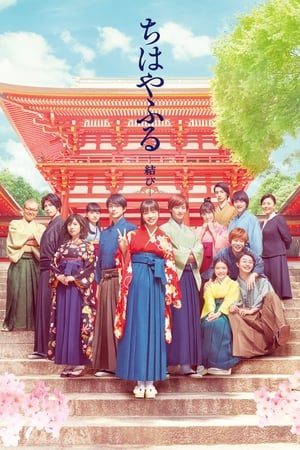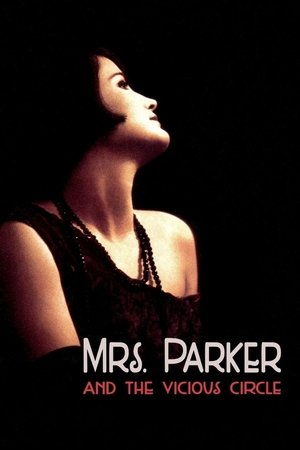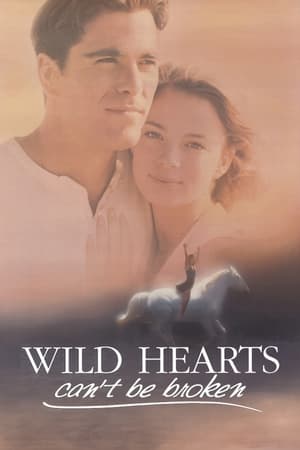Overview
In 1920s China, 19-year-old Songlian becomes a concubine of a powerful lord and is forced to compete with his three wives for the privileges gained.
Reviews
**In the context of oriental cinema, it's a good film... but it's very different from the cinema that we, in the West, are used to, and this difference ends up killing our interest in this work.**
I think this movie was the first Chinese movie I saw, I'm not really sure. I am not an expert on the cinema of this country, but I can say that it is one of those films that you see without much special interest. Of course, I'm talking about the standard audience, because there are really oriental film lovers who will be more interested in this material.
The script is based on the story of Song Lian, a very young and well-formed girl who, after her father's death, is coerced into finding a rich man to marry. She ends up being the fourth wife of a man, having to live with the other wives and learn how to behave in a complex family system, where rivalries and envy are part of everyday life.
The film shows us a type of family life that, for us in the West, is far from being understandable. It could only take place in strongly patriarchal societies, where the role of women is more than subordinate. It's not a great film, but it's frankly decent, and I don't rule out the likelihood that it's a classic of Chinese cinema (experts will opine better).
Gong Li does a very good job in the role of the young Song Lian, and is very well supported by Saifei He, Cuifen Cao, Lin Kong and Qi Zhao. Jingwu Ma doesn't do an inferior job either, in the role of the patriarch and husband of all those wives. The cinematography is very good, as are the costumes and sets, which take us back in time and geography. What prevented the film, perhaps, from being a greater success in the West was the lack of publicity and the difficulty in adapting to the environment of the film, which is very different from the cinema that Hollywood usually exports: it is much more meditative, passive and depressive than most of the cinema we used to see.
**Raise the Red Lantern:**
Directed by Zhang Yimou, Raise the Red Lantern (大红灯笼高高挂) stands as a seminal work in Chinese cinema, premiering in 1991 and adapted from Su Tong's novel Wives and Concubines. The film achieved international acclaim, winning the Golden Lion at the Venice Film Festival and earning nominations for the BAFTA Award for Best Foreign Language Film, solidifying its status as a landmark critique of feudal patriarchy.
**Theme: Critique and Reflection on Feudal Ethics**
The theme of Raise the Red Lantern is profound and weighty, offering a comprehensive critique and reflection on feudal ethics through its portrayal of women's fates in the Chen family compound. While feudal ethics once played a role in social stability and development in Chinese history, by modern times, they had gradually become shackles restricting people's thoughts and actions. In the film, the drawbacks of feudal ethics are vividly displayed.
First, feudal ethics suppress and distort human nature. In the Chen family compound, women's personalities and desires are completely repressed, and they lose their basic rights and dignity as human beings. Songlian, originally a woman with independent thoughts and pursuits, is forced to abandon her ideals and become a vassal of men under the oppression of feudal ethics. The other concubines are no different—they resort to any means to gain favor, gradually losing themselves in intrigue and mutual harm. This distortion of human nature is a severe damage to the spiritual world by feudal ethics.
Second, feudal ethics oppress and exploit women. In a patriarchal society, women are in an absolutely vulnerable position, with their fates entirely in the hands of men. Master Chen, as the head of the Chen family, holds supreme power, deciding the life, death, honor, and disgrace of his concubines at will. To gain his favor, the concubines have to do everything they can, even sacrificing their dignity and personality. Once fallen out of favor, they are mercilessly ignored and abandoned, sinking into endless pain. This oppression and exploitation of women are one of the essential features of feudal ethics.
Third, feudal ethics are hypocritical and decadent. The various rules and etiquettes followed in the Chen family compound, on the surface, seem to maintain family dignity and order, but in reality, they are formulated by feudal rulers to consolidate their status. These rules and etiquettes not only bind people's behavior but also corrupt their minds. The First Wife spends all day eating vegetarian food and chanting Buddha's name, turning a blind eye to the suffering of other concubines; Zhuoyun appears kind, but her heart is sinister and vicious. Their behaviors and inner motivations fully expose the hypocrisy and decadence of feudal ethics.
Raise the Red Lantern is a film with profound ideological connotations and strong artistic appeal. Through its critique and reflection on feudal ethics, it allows us to see the tragic fate of women in that dark era and makes us cherish the hard-won freedom and equality today. Zhang Yimou successfully brought Su Tong's novel to the screen with his unique artistic perspective and exquisite directing skills, presenting the audience with a visual and spiritual feast. This film has not only left a significant mark in Chinese film history but also displayed the unique charm of Chinese cinema on the world stage.
**Characters: The Living Portrait under Feudal Ethics**
The characters in the film are vivid and distinctive, each representing a typical type under feudal ethics. The trajectories of these characters' fates are intertwined, jointly interpreted as the tragedy of women under the feudal system.
**Songlian: The Tragic Transformation from Awakener to Madwoman**
Songlian, a female college student who received new-style education, should have a free and independent soul, but after her father's death, family changes force her to marry Master Chen and become the Fourth Concubine of the Chen family. When she first enters the Chen residence, she still carries a bit of stubbornness and arrogance, disdaining the rules of the Chen residence and the struggles between concubines. She refuses to ride in a bridal sedan chair and insists on walking into the Chen residence herself, a detail that forms a sharp contrast with the steward's "voice coming from high to low," showing her inner yearning for freedom and equality. However, in the feudal cage of the Chen residence, Songlian's edges and corners are gradually worn down. From the first time she uses the right to "hammer feet" to order Yan'er to wash her hair, to later pretending to be pregnant to gain favor, Songlian's changes are lamentable. She gradually adapts to the rules of the Chen residence and even begins to use these rules to seek benefits for herself—a change not voluntary but a cruel oppression and distortion by feudal ethics.
In dietary details, Songlian does not like meat and orders spinach and tofu, taking the meaning of "pure and innocent, guided by immortals," while the master adds "tender bean sprouts," which implies sexual innuendo. This contrast in dietary choices not only reflects Songlian's attempt to retain innocence but also reveals men's use of food symbols for female body desires. When she later falls out of favor and asks why there is no spinach and tofu, but Meishan thinks the food is too vegetarian and orders lotus leaf steamed pork, the diet has become a metaphor for women's status and mentality in the feudal family.
Songlian's body and hair changes are also worth exploring. When she first enters the mansion, she combs a neat braid, wears a white cheongsam and a black skirt, and holds a straight back, showing the vigor and arrogance of a student. After her experience in the Chen residence, her hair becomes messy, her bun is askew, and her posture changes from upright to bent. Especially after the wedding night, she picks up the lamp and walks to the mirror, her hair is only slightly messy. Here, Songlian is dressed in a yellow gown like the jumping yellow wick in a lantern, tightly "protected" by the red lampshade. This detail implies that she did not experience a pleasant first sexual experience but endured a declaration of power.
**Zhuoyun: The Hypocrite under Feudal Ethics**
The Second Wife, Zhuoyun, appears gentle and kind, showing great concern for Songlian, but in reality, she is as vicious as a snake, resorting to any means to gain favor. She instigates Yan'er to prick a voodoo doll to curse Songlian, and after learning that Songlian is pretending to be pregnant, she deliberately lets Yan'er expose it, causing Songlian to completely fall out of favor. Zhuoyun's image profoundly reveals the corrosion of feudal ethics on human nature. In this man-eating society, even among women who are also her fellow victims, there is full of intrigue and mutual harm.
In the film's details, the scene where Zhuoyun waits outside the door frame to enter is particularly typical. "Three males are inside the door frame, and Zhuoyun stops outside until she is allowed to step in," this composition shows the absolute penetration of the patriarchal system in the mansion. As a maintainer and participant in the feudal system, Zhuoyun's behavior is not only to gain favor but also an anxiety about her own status and a helpless obedience to feudal rules. She asks Songlian to cut her hair but is injured, and later exposes Meishan's adultery with Doctor Gao, both reflecting her struggle and distortion under the feudal power structure.
**Meishan: A Tragic Figure Daring to Resist**
The Third Wife, Meishan, was once a famous actress at the height of her popularity. She is beautiful, bold, and dares to love and hate. Different from Songlian and Zhuoyun, Meishan has a stronger sense of resistance to feudal ethics. She has an affair with Doctor Gao, trying to find a trace of freedom and happiness in this oppressive environment. However, her resistance eventually ends in tragedy, as she is ordered by Master Chen to be hanged in the dead house.
Meishan's resistance is reflected in multiple details. She pretends to be ill to call away the master, and when Songlian thinks she will be hostile, she says, "It's good to wake up, or you'll get more confused," showing her disdain for feudal rules. Her unique voice from singing opera becomes her way of expressing herself, forming a sharp contrast with Songlian's young and fresh body, Zhuoyun's back pounding, and the First Wife's rules. When Songlian tells her that she has discovered her adultery with Doctor Gao, she even says bluntly, "I will go out to meet him today"—this resolve is the most direct declaration of sexual autonomy in the deep mansion. And her final hanging in the dead house symbolizes the cruel suppression of feudal ethics against women who dare to resist, also letting people see how small and powerless individual resistance is in the face of powerful feudal forces.
**Yuru: The First Wife, A Faithful Maintainer of Feudal Ethics**
The First Wife, Yuru, as the legitimate wife of the Chen family, is a faithful maintainer of feudal ethics. She spends all day eating vegetarian food and chanting Buddha's name, seemingly uncontested, but in reality, she has absolute control over other concubines. In her eyes, the rules and dignity of the Chen family are above all else, and any behavior that violates the rules will be severely punished.
The First Wife's image embodies the hypocrisy and coldness of feudal ethics. Her three-inch golden lotus feet are particularly eye-catching in the picture, becoming direct evidence of feudal ethics' destruction of women's bodies. Her control over the mansion's affairs and her acquiescence or connivance in Meishan, Songlian, and other "deviant" behaviors show that she is both a beneficiary and a victim of the feudal system. Her existence itself is a symbol of the authority of feudal ethics in the Chen family compound.
**Yan'er: The Power Dream of Lower-class Women**
Yan'er, as a maid, is proud only because she has an improper relationship with the master Chen, but this also makes her a cheap representative who does not need to be responsible. She makes a lantern and lights it in her room, trying to imitate the master's power, but is exposed by Songlian. When she faints in the courtyard, the master only sends someone to take her to the hospital and says, "It's okay to spend a little more money, don't let outsiders talk about us not caring about the death of servants," which completely exposes the commodity attribute of women in the eyes of patriarchy.
Yan'er's tragedy lies in her blind worship and vain imitation of feudal power. She firmly believes that she will become a concubine, but she does not know that under the feudal system, the fate of lower-class women cannot be controlled by themselves. Her death is a warning from the feudal system to all women who try to overstep the class order—whether "master" or slave, they are all priceable power consumables.
**Feipu and Feilan: The Contrast between Male Heirs and Female Destinies**
When Feilan recites books in the hall, her body is full of ornaments, while Yizhen, the daughter of the Second Wife, has nothing on her body. This contrast is actually a materialized presentation of the feudal gender order. Feilan recites Ouyang Xiu's Chinese Hwamei (Thrush) from the Northern Song Dynasty, which uses a comparative technique to express praise for freedom and criticism of restrictions by depicting the different states of thrushes in nature and in cages, echoing Feilan's image bound by ornaments and implying that even male heirs can hardly escape the cage of the feudal system.
Feipu, as the son of the First Wife, has a delicate emotional entanglement with Songlian. The sachet he takes out is embroidered with the word "子孙" (offspring), exposing men's instrumentalized imagination of women's bodies. Songlian's action of throwing back the sachet and her later out-of-control revelation of the truth after getting drunk constitute two attempts at awakening by women under the mask of male warmth. And Feipu's final departure also symbolizes the disillusionment of Songlian's search for emotional comfort in the feudal family.
**The Vertical Politics of Sound: The Steward's Greeting and the Spatial Grammar of Patriarchy**
When Songlian steps into the Chen family gate carrying a wooden box, the steward's greeting, "Miss, who are you looking for?" is not an ordinary greeting—the detail of "the voice comes from high to low" is actually an auditory visualization of the feudal power structure. The height of the Chen family ancestral hall plaque (seemingly three times Songlian's height) forms a natural acoustic barrier, and the voices of male servants must roll from "high places" to reach the women standing below. This vertical sound field implies that in this mansion, women have been in a subordinate position of "being heard" rather than "being seen" from the first second they step in.
More ironically, the steward's address to Songlian remains "Miss"—obviously coming to be a concubine, but treated as a "visitor." This appellation of identity suspension echoes with the bridal sedan chair she refuses to ride: the bridal sedan chair, as a "one-sided festive" moving cage, its existence itself is a dispel of women's free will. When Songlian pushes away the steward's hand and says, "I'll do it myself," the dull sound of the wooden box hitting the ground is just like the first crisp sound of idealism hitting reality.
**The Gender Code of Lanterns: Male Palms and the Visual Discipline of Power**
I wonder if you noticed the detail in the movie that "servants are divided into male and female, but lighting and hanging lanterns are always done by males"—this is actually the most exquisite power metaphor in the entire film. In the spatial rules of the Chen family compound, even the lanterns symbolizing women's "right to be favored" must be lit by male palms—this gender division of labor is not based on physical strength but the ultimate control of the patriarchal system over women's desires. When male servants raise the lanterns with long poles, the camera always focuses on their rough palms rubbing against the lantern ropes, implying men's absolute monopoly over women's "right to be seen."
The details of the foot-hammering scene are even more worth savoring: Cao Ershen's "stern face" but “wear a fawning smile” expression (the wrinkles are like the wood grain of the ancestral hall plaque) and the "terribly regular" sound of the hammer hitting the soles of the feet together form a set of standardized domestication processes. "Foot-hammering = the right to willfulness" is actually a power sacrifice completed with physical pleasure—when Songlian goes from "lighter" resistance to "unable to do without this feeling" dependence, it is the visual process of feudal discipline penetrating the body.
**The Gender Politics of Objects: From Flute to Black Lampshade—the rotation of Power**
The detail of the master taking away the flute in the movie constitutes a complete narrative chain of the loss of female discourse power. This bamboo flute was originally the last remnant of Songlian's student and free identity, but in Master Chen's eyes, it becomes evidence of "distraction." The close-up of the hand taking away the flute is actually a violent appropriation of the female spiritual world by males.
And the "thick layer of dust on the black lampshade" is a visual declaration of feudal punishment. When the male servant takes out the black lampshade from the wooden box, the trajectory of the dust flying in the light beam implies that this is a spiritual burial of the "deviant." And when Songlian walks out of the room after the lamp is sealed, the contrast between the "black lampshade and Songlian's red clothes" is the ultimate presentation of this color violence: red was originally a symbol of her vitality when she first entered the mansion, but now it has become a seal.
**The Power Map of the Body: From Feilan's Ornaments to Yan'er's Lantern**
The detail that Feilan is full of ornaments when reciting books while Yizhen is bare symbolizes the materialized presentation of the feudal gender order. The boy's long-life lock around his neck and silver bracelets on his wrists form a complete set of visual symbols of male inheritance rights, while the girl's smooth neck is the bodily interpretation of “A daughter is like water spilled—once gone, never returned.”
Yan'er's scene of "stealing to make a red lantern" in her room (the lantern frame uses sewing needles and red headstrings) is the lower women's vain imitation of power. When she fantasizes about being foot-hammered, the camera shoots her silhouette through the window lattice (the light and shadow divided by the window frame resemble prison bars), suggesting that even resistance has long fallen into the imagined framework predicted by the patriarchal system. The master's indifferent words, "It's okay to spend a little more money," completely expose the accessory attribute of women in the eyes of patriarchy—whether master or slave, they are all priceable power consumables.
**The Gender Cage of Space: From Door Frame to Dead House's Power Structure**
The composition in the movie where "three males are inside the door frame, and Zhuoyun stops outside" is actually a spatial metaphor of the feudal power structure. The door frame, as a gender boundary, forms a triangular standing composition (a stable power matrix) by males inside the door, and Zhuoyun's bowing and requesting posture jointly embodied the power game of "permission-entrance."
This spatial discipline reaches its climax in the "dead house" scene: when Meishan is dragged in, she is still struggling, but after a while, she merges with the dead silence of the entire room. If this were filmed as a horror movie, it should be like this: after Songlian walks in, the walls around her are covered with portraits of male ancestors of past dynasties, and there are also candle tablets slowly exuding a gloomy atmosphere. Every beam overhead is hung with a rope, and under the ropes are pairs of tattered women's shoes that have long been unknown for years. Meishan is quietly hanging not far away, and the creaking sound is her body swaying back and forth on the rope. Guilt, regret, and fear instantly trap her tightly—how can this not make her mad.
The contrasting montage at the end of "the foot-hammering sound when the Fifth Concubine enters" and Songlian "combing back her braid" (the clothing colors of the two groups of shots are completely symmetry) constitutes a perfect closed loop of the feudal system. When new women step into the cage, the mad Songlian wanders in the courtyard wearing a student uniform, and "the messy hair can never return to being neat"—these scattered hair strands (a few white hairs can be seen in the close-up) are precisely the evidence of youth crushed by feudal ethics.
**Vision: The Metaphor of Color and Composition**
Zhang Yimou is a director who is good at using color and composition to express emotions and themes. In Raise the Red Lantern, his artistic characteristics are fully displayed. The overall tone of the film is mainly gray-blue, and this cold tone creates a Depressing and dull atmosphere, symbolizing the coldness and deathly stillness of the feudal family. The red of the big red lanterns has become the most distinctive visual symbol in the film. Red is originally a symbol of festivity and auspiciousness in Chinese traditional culture, but in the film, it is given a completely different meaning. The brightness and darkness of the big red lanterns represent whether Master Chen favors his concubines or not, and also determine their status and fate in the Chen family. When Songlian first enters the Chen residence, red lanterns are hung high in her courtyard, and at this time, red symbolizes her favor and glory; when she gradually falls out of favor, the lanterns are extinguished, and red also disappears, replaced by endless darkness and desolation. This strong contrast of colors profoundly reveals the impermanence and tragedy of women's fate under feudal ethics.
The composition in the film is also very ingenious, making extensive use of symmetrical composition. The architectural layout of the Chen family compound is regular, and the large houses, corridors, doors, and windows all present a symmetrical structure. This symmetrical composition not only shows the strictness and unshakable order of the feudal family but also implies the restriction and oppression of the characters in this environment. In some scenes, the characters are placed in the center of the picture, surrounded by symmetrical buildings and props, forming a strong visual impact. For example, when Songlian is being questioned by everyone, she stands in the center of the picture, with a tall wall and a closed door behind her, and around her are indifferent Chen family members. This composition highlights Songlian's isolation and the huge pressure she faces. As Songlian loses power in the power struggle, her position in the picture gradually deviates from the center until she is marginalized, visually presenting the ups and downs of her fate and her changing status in the feudal family from the composition.
**Conclusion: Red Lanterns as a Veiled Expression of Power**
Every character in the film plays a tragic role in this power structure. From the steward's voice to the dust of the black lampshade, from the body discipline of foot-hammering rhythm to the emotional rupture of wine glass lip prints, every detail of Raise the Red Lantern is the rhetoric of feudal power. Zhang Yimou constructs a complete patriarchal vision through the gender refraction of objects, the power structure of space, and the discipline mechanism of the body. The power network woven by Zhang Yimou makes the Chen family compound a microcosm of feudal China. Those carefully designed details—whether it is Yan'er's sewn lantern, Feilan's worn long-life lock, or Songlian's teardrop in front of the mirror—are all telling the same truth: in the red lantern world constructed by patriarchy, when we see the red lanterns rise on the screen, we see not only the change of light and shade but also how the four words "feudal ethics" transform women's bodies, desires, and even souls into sacrifices on the power altar. The ultimate form of resistance may only be Songlian's mad wandering and eternal questioning. When the foot-hammering sound of the Fifth Concubine resound again, the end of Songlian's braid combed back is knotted like a prison rope, forming a cruel contrast with the neatness when she first entered the mansion—it is the physical evidence of youth crushed by feudal ethics. When she wanders in the courtyard, the shadow cast by the red lantern overlaps with her figure into the shape of a ghost's claw, echoing the saying, "People and ghosts are only a breath apart"—this breath is precisely the free soul burned out by lantern oil. Now this breath has turned into the blue smoke of lantern oil, hovering over the Chen family compound.

 125 min
125 min
 7.9
7.9
 1991
1991
 China
China
 Filipe Manuel Neto wrote:
Filipe Manuel Neto wrote:
